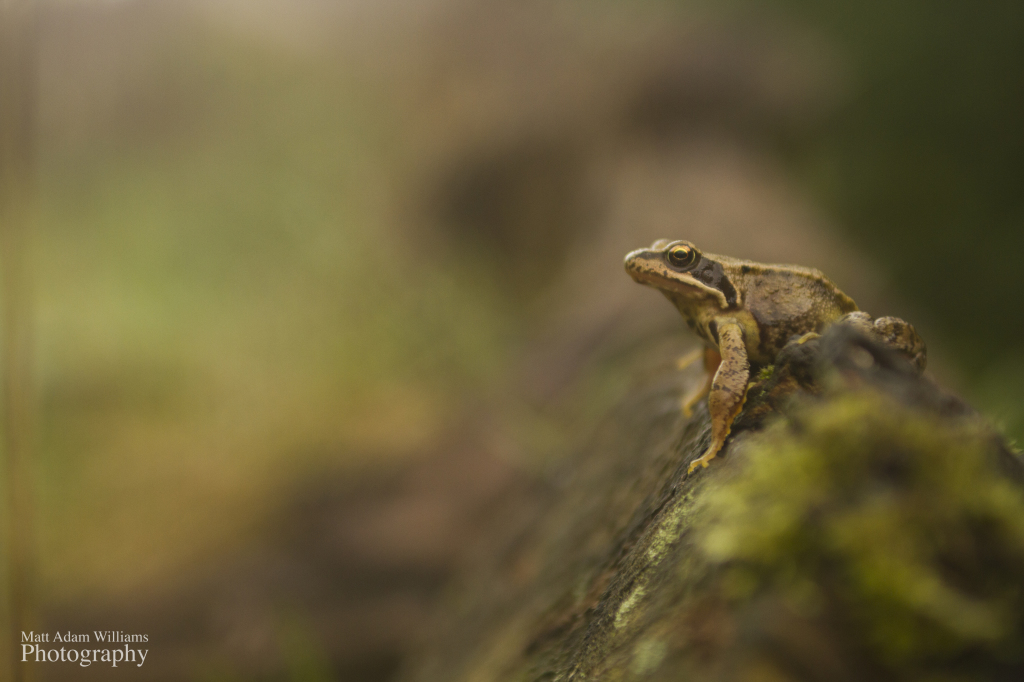Why wildlife needs a youth movement
Originally posted on the Green Alliance website.
A few days ago I happened upon Some thoughts on the common toad, a little known essay by George Orwell. As toads slowly awake across the UK right now, Orwell’s celebration of the end of winter was a timely read.

I know it’s not a toad, but it’s close enough, right?
Typically, Orwell uses his subject as a diving board into the issue of politics. His critics, he says, see appreciation of nature as a distraction from the important work of political reform. But, Orwell asks, “is it politically reprehensible, while we are all groaning, or at any rate ought to be groaning, under the shackles of the capitalist system, to point out that life is frequently more worth living because of a blackbird’s song, a yellow elm tree in October, or some other natural phenomenon which does not cost money and does not have what the editors of left-wing newspapers call a class angle?”
In fact, Orwell believes that “by retaining one’s childhood love of such things as trees, fishes, butterflies and – to return to my first instance – toads, one makes a peaceful and decent future a little more probable”. In Orwell’s vision, the fate of politics is inherently tied to the fate of nature.
Nature isn’t present in politics
It’s therefore worrying that our wildlife is faring so badly. The landmark State of Naturereport, showed that, of the species surveyed, 60 per cent had declined in the past 50 years, around a third of them severely. There are now a staggering 421 million fewer birds in European skies than there were in the 1980s. Beyond the UK’s borders, research by WWF in 2014 showed that bird, fish and animal numbers have declined by half in the past 40 years. Those who will be at the blunt end of this are young people and future generations.
Nature has all but slipped out of our political language. At the Green Alliance’s Greener Britain hustings event recently I noticed that most of the discussion was about energy and climate change.
Over recent years a vibrant youth climate movement has bubbled up around the world, joining with allies like farmers and native peoples to call for divestment from fossil fuels and to fight new fossil fuel infrastructure.
Our future is tied to nature
I’m increasingly convinced that nature also needs its own youth movement to fight for the natural world we want to see, not in 2020 but in 2050. Young people need to unearth the same links between nature and politics as Orwell had spotted.
Young people’s future is intimately tied to that of the natural world. From its capacity to help us adapt to climate change, to providing us with natural services like pollination, to benefiting mental well-being, nature is woven into every part of our lives.
In 2050, when I’m 64 I don’t want us just to have slowed the bleeding, I want nature to be flourishing, and young people to be more connected to nature than any recent generation.
What do we want nature to look like in 2050?
My vision for nature is of urban national parks around the UK, of investment in and by companies that nurture more natural spaces, rather than those that drain nature’s resources dry. It’s of a nation of citizens, politicians and business leaders who take seriously their custodianship of one of our most precious public goods. To get there, I want to see radical new thinking on how we protect, restore, value and communicate about nature.
There is good news: youth interest in nature is in rude health. Groups like A Focus on Nature are connecting young nature lovers and helping them to find mentors and, in turn, careers in conservation. I believe that this group of talented young individuals is a political movement in waiting; it’s a seed that hasn’t yet grown into a landmark on the UK political landscape.
That’s why A Focus on Nature is running the Vision for Nature campaign, putting forward young people’s visions of what they want nature to look like in 2050. Later this year we’ll present the report to politicians and government. Those who come to power in 2015 have a duty to protect nature and ensure its prosperity in 2050, for its own sake and for that of young people.
